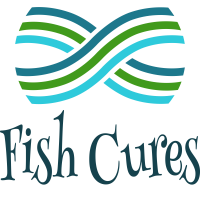 |
About Us |
|---|
Acriflavine Neutral
Acriflavine Neutral treats a wide variety of diseases found in freshwater and saltwater aquariums. It does not affect pH, unlike other forms of acriflavine.
It has a long history of use in both freshwater and saltwater environments, including treatment for Velvet (Oodinium), Columnaris (Flexibacter columnaris), Mouth Fungus, Fin & Tail Rot, Spiroglenia, Sliminess of the Skin, Egg Disinfectant, External Protozoan Infections, general Fungus, Bacterial Infections and Open Wounds.
Acriflavine Neutral can be used as an alternative for species sensitive to Malachite Green.
Treatment:
Remove activated carbon before treating. Dosage varies based on water quality. It is best to dose chemical dyes by sight. Add a pinch at a time until the water turns a slight yellowish brown. Dose daily, after a 25-50% water change, and redose to attain desired coloration. Do not overdose with livestock.
Treat 4 days for most bacterial ailments; max 10 days for external parasites. If no changes noted after the 2nd dose, stop treatment.
Can be used to prevent fungus on eggs; however, wigglers should not be exposed. A single dose is all that is needed. It is recommended to either move the eggs a few hours prior to expected hatching or to do a complete water change in the hatching container prior to expected hatch.
If sterilizing the tank is desired add enough to turn the water a medium to dark brown color. Do not expose livestock to this level as it will kill most anything that is exposed for a length of time. Do a complete water change after a few hours to remove all discoloration of the water. If filter was sterilized, it is recommended to replace the media with seeded media or the tank will need to be again cycled prior to adding livestock.
Monitor fish closely and stop if fish are not tolerating it well. Do not use with invertebrates or in a planted aquarium. Safe for scaleless fish.
NOTE: Acriflavine is a chemical dye and can stain an aquarium. It is recommended to use in a QT environment and not in a show tank.
NOTE: It has been reported that discus breeders have noticed use of Acriflavine may temporarily sterilize fish. Please be aware of this potential side effect when treating breeding pairs.
